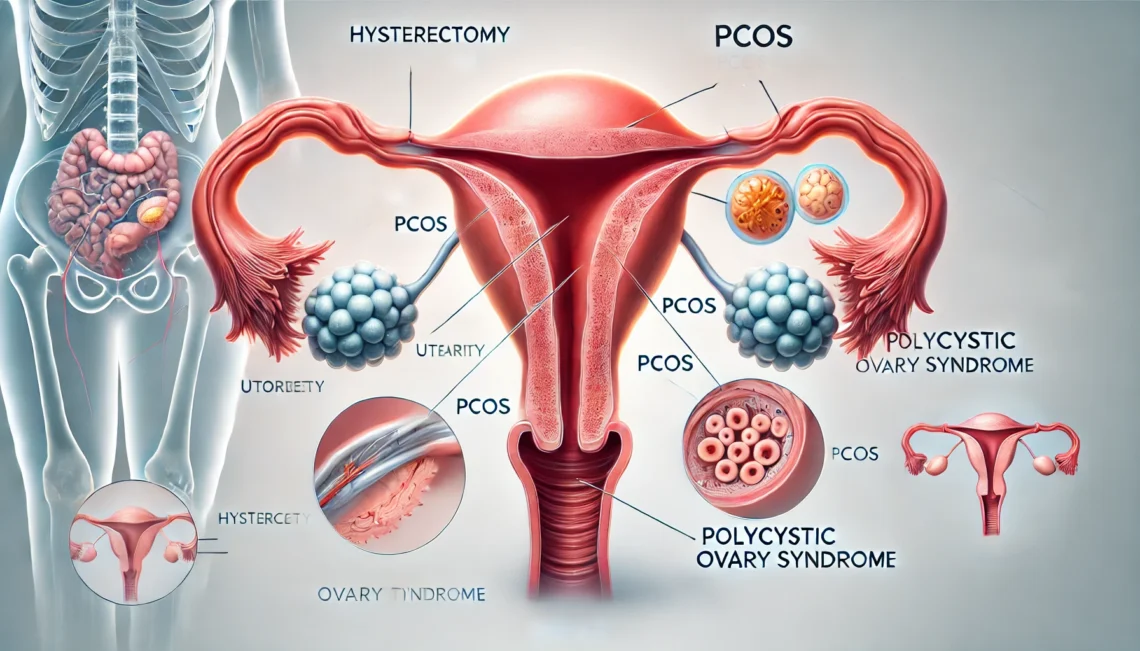If you’ve been dealing with the ups and downs of Polycystic Ovary Syndrome (PCOS), you might have heard that a hysterectomy could be a potential “cure.” The idea of getting rid of symptoms like irregular periods, acne, excess hair growth, and infertility through surgery can sound tempting. But, is a hysterectomy really the right solution for PCOS? Let’s take a closer look and see what the experts say. PCOS is a common hormonal disorder that affects women during their reproductive years. It can cause a range of symptoms, including: Irregular or missing periods Cysts on the ovaries (though not everyone…
-
-
If you’ve been diagnosed with Polycystic Ovary Syndrome (PCOS), you’re likely familiar with the challenges it brings. From managing weight gain and insulin resistance to dealing with irregular periods, PCOS affects various aspects of your health. Recently, a medication called Ozempic (semaglutide) has gained attention, especially among women with PCOS and a lot of people ask the question “Will insurance cover for PCOS?”. Known primarily for helping people with type 2 diabetes, Ozempic has shown promise in addressing some common struggles women with PCOS face, like weight loss and insulin sensitivity. But here’s the key question many have when considering…
-
Polycystic Ovary Syndrome (PCOS) is a prevalent hormonal disorder affecting women worldwide, often leading to a range of symptoms, including irregular periods, fertility challenges, acne, and excessive hair growth. While the condition is complex and multifactorial, recent studies suggest that Vitamin C may offer significant benefits in managing PCOS. This article explores how Vitamin C can support hormonal balance, improve fertility, and reduce inflammation in women with PCOS. What is PCOS and How Can Vitamin C Help? PCOS affects up to 1 in 10 women of reproductive age, causing imbalances in hormones such as insulin and androgens. The most common…
-
Vitamin D for PCOS is an essential topic for women with Polycystic Ovary Syndrome (PCOS), as research shows that low levels of Vitamin D can worsen PCOS symptoms. By boosting Vitamin D levels, women can improve hormone regulation, reduce inflammation, and support overall health. This article explores how Vitamin D works, its sources, and ways to ensure you’re getting enough of this vital nutrient. What Is Vitamin D for PCOS? Vitamin D, often referred to as the “sunshine vitamin,” is produced by your skin when exposed to sunlight. It plays a crucial role in bone health, immune support, and hormone regulation.…
-
Polycystic Ovary Syndrome (PCOS) is a condition that affects many women, particularly those in their reproductive years. It can cause symptoms like irregular periods, acne, weight gain, and difficulty getting pregnant. While there’s no cure for PCOS, certain vitamins for PCOS can help alleviate these symptoms and improve your overall well-being. Let’s dive into the best vitamins for PCOS and how they work! What is PCOS? PCOS occurs when your ovaries produce too many male hormones (androgens). This imbalance can lead to: Irregular or missed periods Excess facial or body hair (hirsutism) Acne or oily skin Weight gain or difficulty…




